Packaging Sustainable Solutions – Is pyrolysis the correct solution for the chemical recycling of waste tyres? 02-08-2023 - Arhive
Packaging Sustainable Solutions

Crude Oil Prices Trend by Polyestertime
“We are calling for fair competition for all packaging materials”
Karl Hagspiel, Senior Circular Economy Expert, talked in an interview with PETplanet about the recycling and sustainability strategy at ALPLA and the current challenges in the rPET market.
ALPLA has been active in plastic recycling since the 1990s. At that time, a 1,000 ml plastic bottle for Lenor was made from PCR material. Thirty-three years have passed since then. Recycling is now at the heart of a circular economy. What does a circular economy mean to ALPLA?
The circular economy is a central theme at ALPLA. Because, as the name suggests, it’s about keeping the material in the cycle or loop for as long as possible. Together with the also very important topic of design for recycling (D4R), we at ALPLA try to keep polymers at the highest possible level of recycling. But our efforts relating to plastics are only one step towards a closed loop – an approach that moves away from the prevailing linearity in the current global economy. Packaging Sustainable Solutions
For our part, we are trying to fulfil our responsibility by producing only 100% recyclable packaging from 2025, offering a wide variety of reusable bottles, and steadily increasing recycling capacity – for both PET and HDPE – worldwide to obtain high-quality recycled material we produce ourselves and thereby guarantee availability to our customers.
Last year, ALPLA developed Austria’s first modern PET returnable bottle for the mineral water company Vöslauer. Could you briefly outline the key data of the project and explain why Vöslauer decided on this type of returnable packaging?
The returnable PET bottle for the Vöslauer mineral water brand was the first modern returnable PET bottle for the Austrian market. In principle, we develop reusable packaging because our customers want and demand it and because we believe that this will be a big market in the future. For the project with Vöslauer, we were able to draw on our long experience in this field, because we have already been producing a returnable PET pool bottle for the German mineral water association (GDB – Genossenschaft Deutscher Brunnen) in Germany for many years. Packaging Sustainable Solutions
And we also have various sizes of returnable PET bottles in use for Coca-Cola in Central America. The reusable PET bottle for Vöslauer is a 1-litre bottle that, at just 55 g, is around 90 per cent lighter than the glass alternative. This alone reduces the carbon footprint by around 30 per cent. The bottle is made entirely of recyclable PET monomaterial with a recycled content of around 30 per cent. This is to be increased on a continuous basis over the coming years. With 12 cycles, the bottle is expected to remain in use for around three to four years. From an environmental point of view, the investment is already worthwhile when it is first used. At Vöslauer, the introduction of refillable PET will save around 420 t of Co2.per year. This answers the question of why Vöslauer decided to use this type of reusable packaging. Packaging Sustainable Solutions
The Vöslauer returnable bottle currently contains 30% rPET. The company would like to use a higher proportion of recyclate. But since the logistics chains were reorganised after the Covid-19 pandemic in the second half of 2022, virgin PET is very cheap in Europe and is displacing PET recyclates. Inflation is also still high, which is having a negative impact on consumption. Recyclers are left with a lot of material on their hands. How do you assess the current situation?
You are right – the current price for new PET is a real challenge for recyclers, and the critical market situation is exacerbated by reduced consumption in the private sector. The first recycling plants in Germany have already had to stop production due to the current sales and price situation. But we are facing another big challenge, or rather a new danger. It is the import of rPET from countries outside the EU. The material is cheaper than the material produced within the EU. Yet we have no certainty about the origin of the material, while the EU is demanding ever stricter documentation and proof of the origin and quality of rPET or other types of recyclates. At ALPLA, we are countering this trend by expanding our own recycling plants. In this way, we want to ensure that we can continue to provide our customers with sufficiently high-quality recyclates in the future to meet the ambitious targets set by the EU and other requirements. Packaging Sustainable Solutions
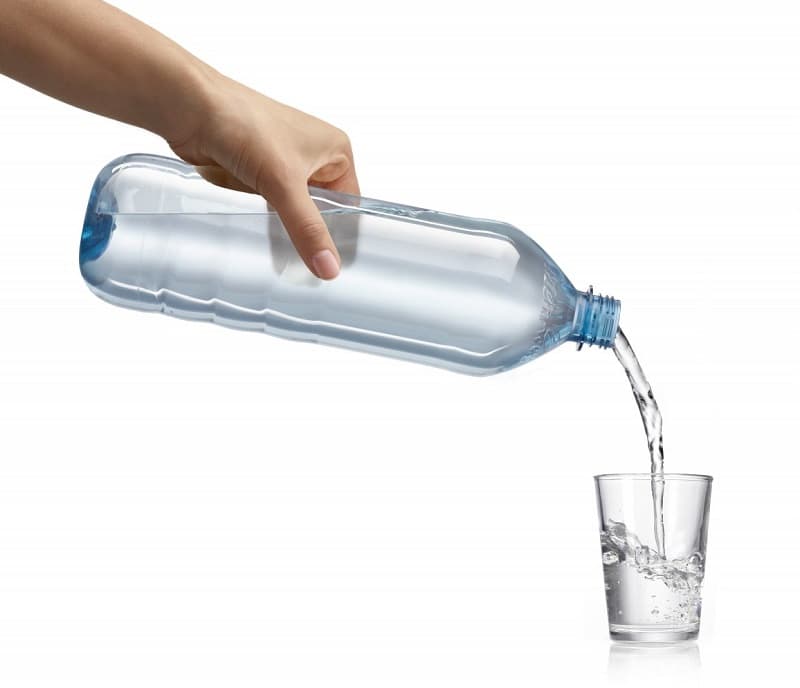
Veocel Commences Responsible Viscose Fibre Production in Asia-Pacific
Lenzing Group has proudly announced the official availability of Veocel branded responsible viscose fibres from its production plants in the Asia-Pacific region. The new fibre offering is now accessible through the Lenzing Nanjing Fibers production site, and in the second half of this year, it will also be made available from its South Pacific viscose plant.
This significant milestone was achieved through the conversion of two production sites, enabling a more optimized process and efficient use of energy in the fibre production for the Asia-Pacific market. Steven Tsai, the senior regional commercial director for Nonwovens Asia at Lenzing, expressed excitement about the expansion, stating, “The expansion of Veocel branded viscose fibre production in our production facilities is a key milestone for our brand development in Asia-Pacific. Since the beginning of the Covid-19 pandemic, we have observed a strong growth in demand for responsible alternatives to fossil-based materials in the nonwovens sector, from cleaning and hygiene products to everyday care products, especially in Asia-Pacific. Packaging Sustainable Solutions
We are confident that with the launch of responsible viscose fibres in the region, we can support the evolution of the cleaning and hygiene sector, transitioning from heavy reliance on fossil-based materials to responsible, wood-based alternatives.”
Veocel branded fibres have received certification from the EU Ecolabel, assuring their eco-friendliness. These fibres are designed to be gentle on the skin, providing efficient absorption and liquid management. The uniform distribution of absorbed liquids enhances the liquid management in nonwoven products. With their versatile properties, the fibres find application in various sectors, especially in hygiene products. Given the increasing popularity of functional single-use wipes in the Asia-Pacific region, emerging from the COVID-19 pandemic, Veocel fibres are well-positioned to cater to this trend.
In addition to the viscose fibres, Veocel is actively expanding its co-branding portfolio across key markets in the Asia-Pacific region. Packaging Sustainable Solutions
The brand is welcoming new partners who produce a range of nonwoven products, including facial sheet masks, baby wipes, flushable moist toilet tissues, and sanitary napkins.
The move towards sustainable and eco-friendly materials is gaining momentum worldwide, with consumers becoming increasingly conscious of the environmental impact of their choices. Lenzing’s commitment to producing responsible viscose fibres through Veocel showcases their dedication to meeting this growing demand for eco-conscious alternatives. By offering smooth and efficient fibres, Lenzing is not only catering to consumer preferences but also supporting the global shift towards more sustainable practices in the hygiene and nonwovens industry. Packaging Sustainable Solutions
As the world faces ongoing challenges in tackling environmental issues, responsible production practices and the adoption of sustainable materials are becoming critical for businesses across all industries. Lenzing’s initiative to produce Veocel branded fibres in the Asia-Pacific region marks a step in the right direction, providing a positive impact on the environment and a more sustainable future for the industry. With the region’s growing interest in eco-friendly products and the rise of single-use hygiene items, the availability of Veocel fibres is bound to make a significant contribution to a greener and more responsible world.
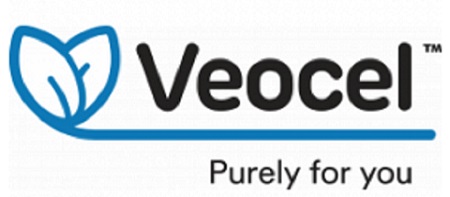
The 3rd Latin American Conference on Tyre Recycling: A Gateway to Sustainable Solutions
The Sustainable Latin American Tyre Committee (SLTC), boasting a membership of over 6,000 and three decades of experience, stands resolute in its commitment to promoting the circular economy, sustainability, and the recycling of rubber products, all in the name of fostering a healthier environment. Encouraging the collaboration of various stakeholders, the SLTC invites all concerned parties to partake in the upcoming III Latin American Tire Recycling Conference, set to take place in the beautiful city of Lima, Peru, from September 20th to 22nd. This event represents a unique opportunity to engage with both local and international players in the End-of-Life (EOL) recycling market, bringing industry, academia, and government together under one roof.
By attending the conference, participants will gain access to a multitude of advantages and opportunities:
- Unlocking New Waste Management Possibilities: The event will serve as a platform to generate novel ideas and solutions for the management and treatment of rubber waste, thereby reducing its environmental impact.
- An Exclusive Latin American ELT Recycling Gathering: As the only conference dedicated to ELT recycling in the region, attendees can be assured of an unparalleled opportunity to network and collaborate with industry experts and decision-makers. Packaging Sustainable Solutions
- Expanding Knowledge and Promoting Brands: The conference promises to be a treasure trove of valuable insights, showcasing cutting-edge technological alternatives, regulatory updates, and developments in the field of rubber recycling.
The conference will explore several key areas vital to the advancement of tyre recycling:
- ELT Management Systems and New Regulations: This segment will delve into the latest systems, laws, and developments surrounding ELT management in Latin America, highlighting the role of public administrations in the region.
- Innovation, Experimental Development, and Research: The conference will showcase alternative applications for tyre-derived components, new composite materials derived from recycled rubber, and innovative treatment processes, paving the way for sustainable advancements.
- Recycling Technologies and Lessons Learned: Addressing challenges in recycling Off-The-Road (OTR) mining tyres, experts will shed light on techniques such as pyrolysis, devulcanisation, thermolysis, and co-processing.
- Tire Retreading: Participants will explore OTR mining tyre maintenance, fleet management, certifications, environmental benefits, and global trends, crucial for enhancing the life cycle of tyres. Packaging Sustainable Solutions
The highlight of the conference will be the emphasis on the latest research on rubber parts tailored for the mining industry. Attendees will have the unique opportunity to interact with esteemed technical experts within this sector.
Additionally, on the afternoon of Thursday, September 21st, the “Symposium on EOL in Asphalt Mixes: For More Sustainable Roads” will tackle programs and investments in the management of national and regional road networks. Discussions will encompass existing management systems, tyre recycling techniques, and the incorporation of ELT powder into asphalt mixtures using state-of-the-art technologies.
The conference is tailored to cater to a diverse audience, including legal professionals, waste managers, logistics operators, recyclers, service and machinery providers, researchers, entrepreneurs, students, teachers, consultants, business chambers, as well as technical, legal, and environmental teams from rubber recycling companies, rubber product manufacturers, ELT generators, and government agencies, among others.
The venue for this enlightening event is the prestigious NOS Convention Centre of the Pontificia Universidad Católica del Perú (PUCP), situated in the heart of Lima’s San Isidro district. Packaging Sustainable Solutions
This modern facility, comprising two interconnected office towers, boasts multipurpose rooms, a theater with a seating capacity for up to 600 people, an auditorium, a training centre, and classrooms—making it the ideal locale for merging technological progress, business, knowledge, and culture.
In conclusion, the III Latin American Tire Recycling Conference promises to be an unmissable rendezvous for those striving to contribute to a sustainable future. By engaging in meaningful discussions, sharing knowledge, and fostering partnerships, the event aims to drive positive change in the tyre recycling industry and beyond.
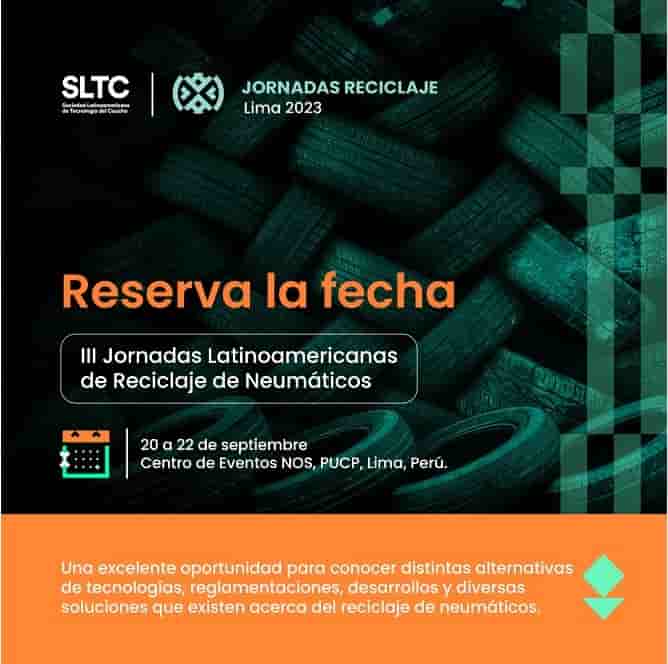
Constantia Flexibles changes ownership
Wendel, a leading investment firm, has entered into an agreement to sell Constantia Flexibles, a global leader in the flexible packaging market, to an affiliate of One Rock Capital Partners, LLC (One Rock). Constantia Flexibles specializes in providing flexible packaging solutions to a diverse range of blue-chip customers and local champions in the consumer and pharmaceutical industries.
The deal is valued at approximately €1,097 million, resulting in net proceeds for Wendel. This figure reflects a multiple of 1.94 times Wendel’s total investment in Constantia Flexibles since 2015. The transaction’s net proceeds surpass Constantia Flexibles’ valuation in Wendel’s net asset value (NAV) published prior to the announcement, which was as of March 31, 2023. This additional amount totals €84 million. Packaging Sustainable Solutions
Moreover, there is potential for further proceeds from the ongoing disposal of assets, which could raise the total proceeds to €1,124 million. This figure represents an impressive 11.0% increase in valuation compared to the NAV at March 31, 2023, and a 6.8% increase compared to the NAV at June 30, 2023.
The completion of the transaction is expected to occur during the second half of 2023, pending the fulfillment of contractual conditions, including regulatory clearance.
David Darmon, Wendel Group’s Deputy CEO, emphasized the success of Constantia Flexibles under Wendel’s ownership. The long-term investor model has been instrumental in supporting the company’s development. Constantia Flexibles prioritizes innovation, positioning itself at the forefront of the circular economy while maintaining the functional excellence of its products. During challenging times, such as the Covid-19 crisis and disruptions in energy and commodities markets, the teams at Constantia Flexibles demonstrated commitment and resilience, delivering exceptional operational, financial, and extra-financial performance. Packaging Sustainable Solutions
Pim Vervaat, CEO of Constantia Flexibles, expressed gratitude for Wendel’s dedication and commitment, which played a pivotal role in the company’s current success. Wendel’s supportive partnership allowed Constantia Flexibles to invest in its workforce, drive innovation, and offer sustainable solutions to the consumer and pharmaceutical markets.
The agreement marks a significant milestone for both Wendel and Constantia Flexibles, highlighting the positive outcomes achieved through collaboration and long-term investment strategies. As the deal progresses towards closure, the parties involved are optimistic about the future prospects for Constantia Flexibles under One Rock’s ownership, further solidifying its position as a key player in the global flexible packaging industry.
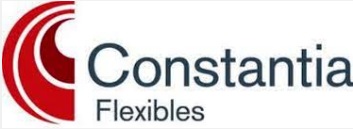
Hyosung Vietnam wants to invest 1 billion USD for a carbon fiber factory in Ba Ria-Vung Tau
Hyosung Vietnam has expressed its intent to invest in a major carbon fiber factory project in the Phu My 2 Industrial Park, Phu My Town, with an impressive capital outlay of nearly $1 billion USD. In the initial phase of the project, the investment will amount to around $160 million, as reported by Vietnam.postsen. Packaging Sustainable Solutions
The Chairman of the Provincial People’s Committee, Mr. Nguyen Van Tho, held a meeting with the delegation from Hyosung Vietnam Co., Ltd. and Hyosung Vina Chemical Co., Ltd. to discuss various aspects related to the development and execution of the projects within Ba Ria-Vung Tau province.
Hyosung Vietnam Co., Ltd. representatives shared their vision for the carbon fiber factory project, which is slated to be located in the Phu My 2 Industrial Park. The project’s total capital investment is estimated to be close to $1 billion USD, and the first stage will involve an investment of approximately $160 million USD.
During the meeting, the representatives from Hyosung Vietnam Co., Ltd. sought guidance from the provincial authorities regarding the necessary documentation and procedures to apply for project investment policies. They also raised several inquiries related to the project implementation process.
In response, Chairman Nguyen Van Tho warmly welcomed Hyosung Group and its subsidiaries’ interest in selecting Ba Ria-Vung Tau province as their investment destination. He expressed high appreciation for Hyosung Vietnam Chemical Co., Ltd.’s efforts in successfully implementing the Polypropylene (PP) Factory and Hyosung LPG underground storage project in Cai Mep Industrial Park, ensuring that the project adhered to its committed timeline. Packaging Sustainable Solutions
Chairman Tho assured Hyosung Vietnam of the province’s full support to expedite the establishment of the carbon fiber factory project. He also pledged to assign relevant units to provide necessary guidance to ensure that the application process is completed accurately and efficiently.
It’s worth mentioning that Hyosung TNC Corp., a prominent South Korean textile and yarn manufacturer, has partnered with Samsung Electronics Co. to produce eco-friendly protective clothing made from recycled PET bottles. These PET bottles, sourced from nearby cities like Hwaseong and Suwon, including Samsung Electronics semiconductor plants, will be transformed into a recycled fiber called Regen, developed by Hyosung TNC. An astounding 10 million bottles are set to be recycled for the production of eco-friendly protective clothing.
With such a substantial investment in the carbon fiber factory project, Hyosung Vietnam is poised to contribute significantly to the province’s economic growth, create employment opportunities, and bolster the region’s position as a hub for advanced manufacturing. The project also aligns with the company’s commitment to sustainability and environmentally friendly practices, as evident from its initiatives in producing eco-friendly protective clothing from recycled materials. Packaging Sustainable Solutions
Overall, the proposed carbon fiber factory represents a pivotal step towards innovation and progress in Ba Ria-Vung Tau province, further strengthening its appeal as an attractive destination for foreign investments and sustainable industrial development.
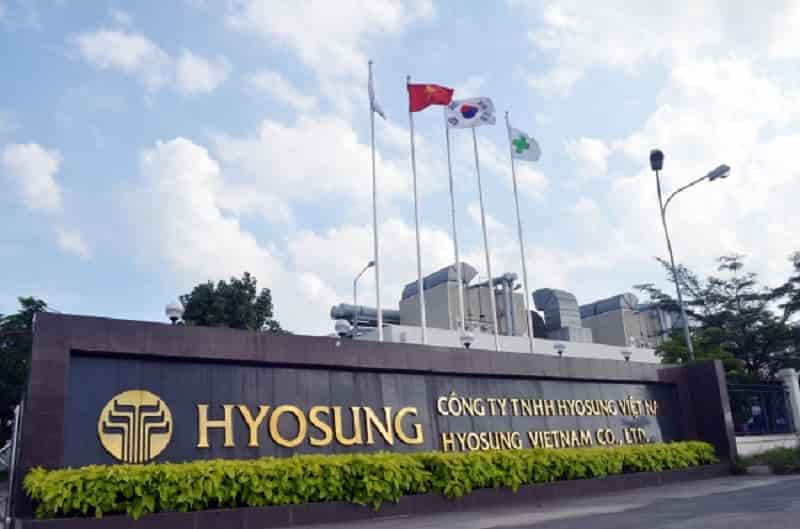
Chinese joint venture in MDI dissolves
BASF, Huntsman, Shanghai Hua Yi, Shanghai Chlor-Alkali Chemical Co. Ltd., and Sinopec Shanghai Gaoqiao Petrochemical Co. Ltd. have jointly announced their plans to separate their joint MDI (diphenylmethane diisocyanate) production at Shanghai Lianheng Isocyanate Co., Ltd. (SLIC) in Caojing, China. Going forward, each company will independently operate one of the MDI plants located at the site.
Ramkumar Dhruva, President Monomers division at BASF, expressed the significance of the SLIC joint venture in establishing MDI production in China at the Shanghai Chemical Park. The new organizational structure will enable BASF and its partners, Shanghai Hua Yi and Sinopec Shanghai Gaoqiao Petrochemical Co., Ltd., to enhance their MDI operations in Shanghai and better cater to customer demands in the region.
Over the past nearly two decades, Huntsman, in collaboration with its partner, Shanghai Chlor-Alkali Chemical Co., Ltd., has successfully developed its polyurethanes business in China through the production of crude MDI in the SLIC joint venture. Tony Hankins, President of Huntsman Polyurethanes, stated that integrating these assets into their downstream operations will position them to meet future customer innovation and growth needs effectively. Packaging Sustainable Solutions
Under the new setup, Huntsman, along with Shanghai Chlor-Alkali Chemical Co., Ltd., will take ownership of the original MDI plant that commenced commercial production in 2006, along with a hydrogen chloride recycling unit for chlorine production (a precursor for MDI), added in 2018. On the other hand, BASF will own and operate the MDI plant added in 2018, including the manufacturing facilities for the precursors aniline and nitrobenzene. All employees currently working in the Joint Venture will be transferred to their respective organizations.
The implementation of the new operational structure is expected to take place during the fourth quarter of 2023, subject to pending regulatory authority approvals, permits, and other customary closing conditions.
Apart from the Caojing plant, BASF has MDI production sites in Chongqing, China, as well as in Yeosu, South Korea; Antwerp, Belgium; and Geismar, Louisiana. After the joint venture restructuring, BASF’s global production capacity for MDI will reach approximately 1.9 million tons. Packaging Sustainable Solutions
Huntsman operates world-scale MDI production and splitting facilities in Rotterdam, the Netherlands, and Geismar, Louisiana, in addition to its facilities in Caojing.
MDI plays a crucial role as a precursor in the production of polyurethanes, versatile polymers widely used in the automotive and construction industries, household appliances such as refrigerators, and footwear.
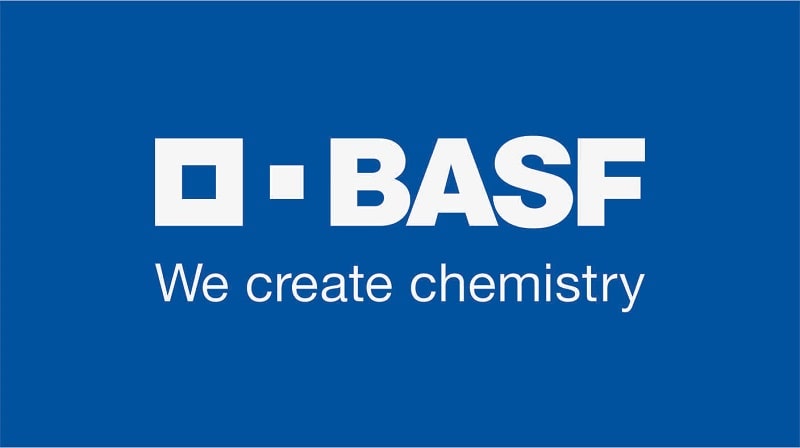
Noroo Paint, a South Korean company, has recently announced a groundbreaking advancement in eco-friendly packaging
According to Kedglobal, the firm has successfully developed a plastic container with oxidative biodegradation capabilities, offering a solution to the environmental challenges posed by traditional plastic packaging.
The first product to feature this innovative packaging will be Noroo’s flagship item, “The Stain,” which is set to hit the market next month. The company’s commitment to environmental, social, and corporate governance (ESG) management is underscored by the development of this eco-conscious container. Packaging Sustainable Solutions
To create this eco-friendly packaging, Noroo Paint collaborated with Symphony Environmental Technologies, a British chemical company known for its development of d2w, an oxidative biodegradation additive. Unlike conventional plastic containers that break down into small pieces when incinerated, causing harmful microplastic pollution, Noroo’s new container is designed to react to various natural elements present in soil and marine environments, such as bacteria, oxygen, ultraviolet rays, and heat. Through this process, the container undergoes biodegradation by microorganisms over a period of five years, ultimately converting into harmless substances like carbon dioxide, water, and biomass.
This development comes at a crucial time when the world is facing growing concerns over plastic pollution and its detrimental impact on ecosystems. By embracing such sustainable packaging, Noroo Paint is taking a significant step forward in contributing to global efforts aimed at combating environmental challenges.
It’s worth noting that other companies in the industry are also making strides toward eco-conscious solutions. For instance, Ecopol, a developer and producer of water-soluble and biodegradable films used in household detergent products, recently entered into a strategic investment partnership with SK Capital Partners. This move is intended to support Ecopol’s expansion efforts, including entry into new markets and the establishment of production facilities in the United States. Packaging Sustainable Solutions
Ecopol’s primary focus lies in providing sustainable and convenient delivery systems for unit dose household detergent products, catering to both automatic and dishwashing laundry applications. By introducing these innovative films, the company aims to reduce carbon emissions, plastic packaging consumption, and water usage across various businesses’ supply chains. Such initiatives hold the potential to make a considerable impact on the environmental footprint of the detergent industry.
Overall, the efforts of companies like Noroo Paint and Ecopol represent a collective drive within the business community to embrace environmentally responsible practices. As global awareness of environmental issues continues to grow, consumers and businesses alike are demanding sustainable alternatives to conventional products and packaging.
The introduction of Noroo’s oxidative biodegradation plastic container for its main products and Ecopol’s water-soluble and biodegradable films are just two examples of how industry players are working towards a greener future. By prioritizing ESG management and investing in eco-friendly innovations, these companies are setting a positive example for the broader business landscape, demonstrating that environmental responsibility and business success can go hand in hand. As more enterprises adopt similar practices, the world moves closer to a more sustainable and resilient future. Packaging Sustainable Solutions

Sustainable FDCA BioPET – The Electric Car Revolution: Embracing Chinese Technology
Packaging Sustainable Solutions
